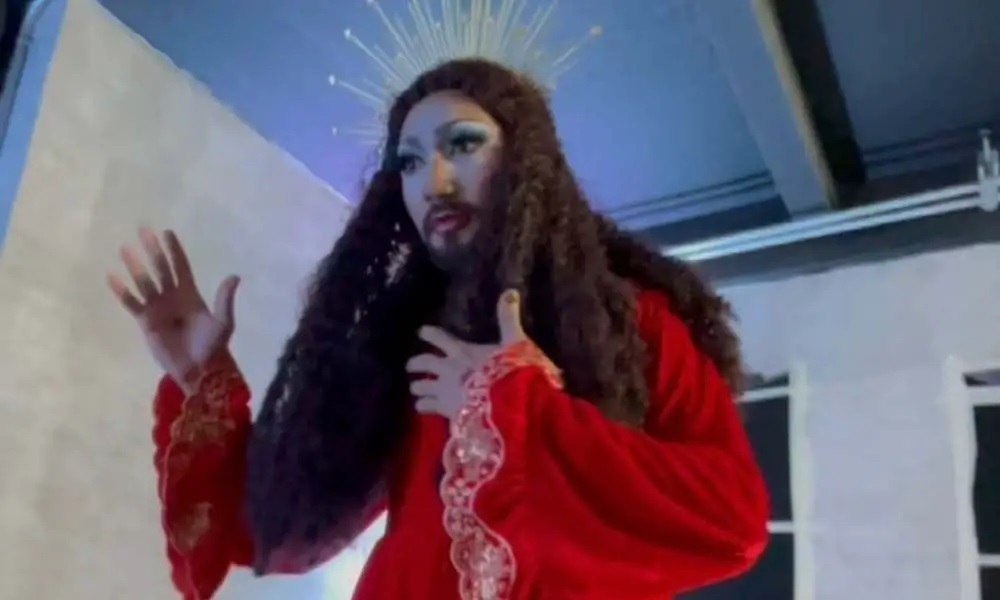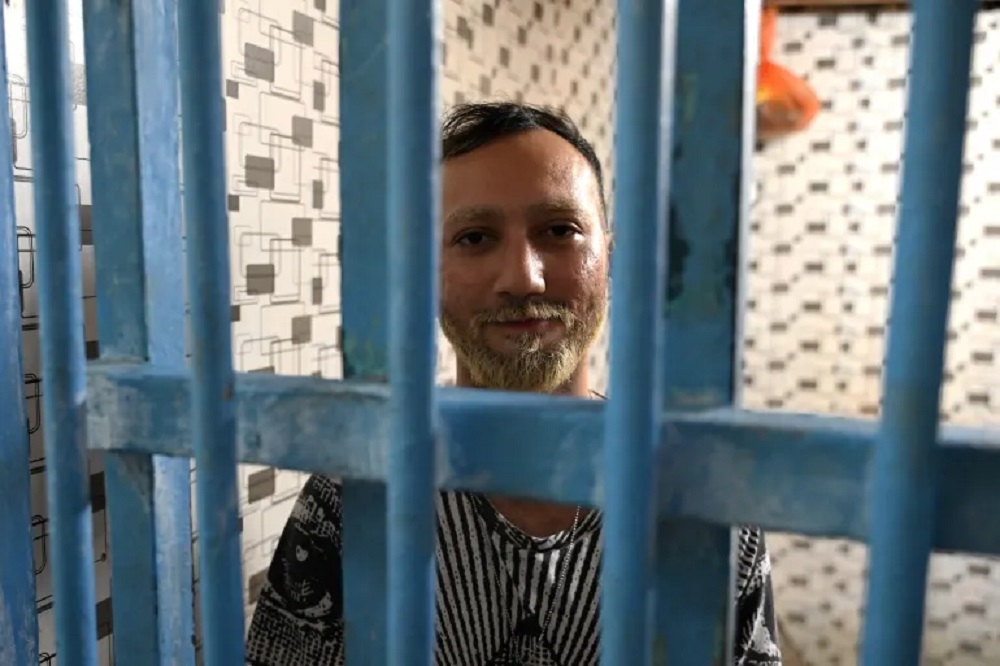News
Philippines Criminally Charges Drag Queen With Religious Blasphemy

A drag queen in the Philippines has been arrested after their performance of the Lord’s Prayer dressed as Jesus Christ sparked controversy in the predominantly Catholic country.
Amadeus Fernando Pagente, better known as Pura Luka Vega, was arrested on Wednesday in connection with their June performance of Ama Namin, a punk rock version of the Lord’s Prayer, at Pride in Manila.
The video later went viral, prompting condemnation from a number of major religious figures as well as parliamentarians. The Philippine Catholic Bishops Conference condemned the performance as “blasphemous” and disrespectful to the church.
Meanwhile, the Philippines for Jesus Movement and other Christian groups filed a criminal complaint, and the performer was designated ‘persona non grata’ in 17 cities across the country, including Manila and Cebu in the south.
Vega, 33, was accused with violating a law that makes “indecent or immoral plays, scenes, acts, or shows” that “offend any race or religion” illegal. The charges involve a possible prison sentence of up to 12 years, as well as penalties.
“Vega’s performance may offend some, but it is protected expression under international human rights law,” said Ryan Thoreson, an expert with Human Rights Watch’s Lesbian, Gay, Bisexual, and Transgender Rights Programme.
“Freedom of expression includes artistic expression that offends, satirises or challenges religious beliefs.”
Vega defended themselves on X, then known as Twitter, during the outrage over the video in July, stating the performance was their way of thanking God.
“I understand that people call my performance blasphemous, offensive or regrettable,” Vega said in a statement. “However, they should not tell me how to practise my faith or drag. That performance was never for you to begin with. It is my experience and expression of having my rights violated.”
Following their incarceration, Vega told reporters that they had “done nothing wrong” and that their arrest revealed “the degree of homophobia” in the Philippines.
Thoreson believes the allegations against Vega should be withdrawn and he should be released.
Following Vega’s detention, the hashtag #FreePuraLukaVega shot to the top of the trending topics on X in the Philippines.
Divorce, abortion, and same-sex marriage are all illegal in the Philippines, where about 80 percent of the population is Catholic.
Blasphemy in the Philippines
Blasphemy is a sensitive and controversial issue in many countries, including the Philippines. The Philippines is a predominantly Catholic country, with a significant Christian population, and religious beliefs are deeply ingrained in the culture and society. As such, any act or expression that is considered blasphemous can be met with strong reactions from religious groups and individuals.
Blasphemy in the Philippines is generally dealt with under existing laws related to religious freedom and expression. While the Philippine Constitution guarantees freedom of speech and freedom of religion, there are also laws that prohibit actions that could be seen as disrespectful or offensive to religious beliefs.
The Revised Penal Code of the Philippines, for example, includes provisions that criminalize blasphemy against religious beliefs and practices. Article 133 of the Revised Penal Code states:
“Art. 133. Offending the religious feelings. — The penalty of arresto mayor in its maximum period to prision correccional in its minimum period shall be imposed upon anyone who, in a place devoted to religious worship or during the celebration of any religious ceremony shall perform acts notoriously offensive to the feelings of the faithful.”
This law essentially makes it a criminal offense to engage in actions or speech that are offensive to religious sensibilities during religious ceremonies or in places of worship. Violators can be subject to penalties, including imprisonment.
It’s important to note that the enforcement of blasphemy laws in the Philippines can vary, and cases are often influenced by local religious sentiments and political factors. There have been instances in the past where individuals or groups have faced legal action or public backlash for perceived blasphemy, and these cases have sparked debates about the balance between free speech and the protection of religious beliefs.
In recent years, there have been discussions about revising or repealing blasphemy laws in the Philippines to better align with principles of freedom of expression. However, as of my last knowledge update in September 2021, these laws were still in place and being enforced to some extent.
Please note that the legal and social landscape may have evolved since that time, and it’s advisable to consult up-to-date sources and legal experts for the most current information on blasphemy laws in the Philippines.
Read: Catholics Nail 8 Devotees to Crosses For Good Friday in The Philippines































